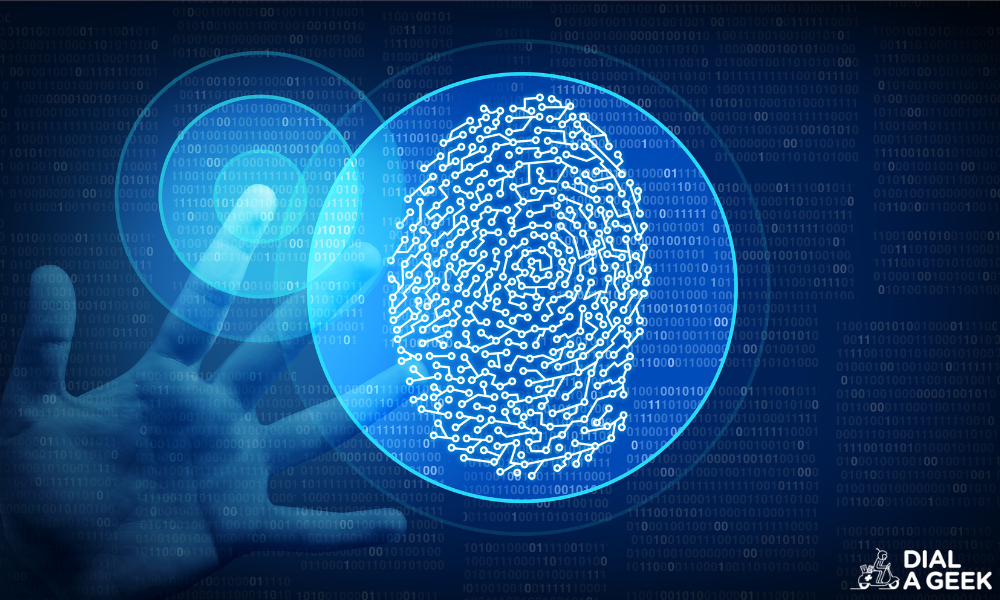Your digital identity includes all of the activities and actions you take online every day.
It’s not just your login credentials (though, of course, these are a vital part of it). It’s who you are, what you do, and what you have access to in the digital world.
The power that having access to your digital identity gives cyber criminals is much bigger than you might think.
Using your digital identity, an attacker could gain access to your business’s finances. They could access and then sell the sensitive information of your team or your clients. In some cases, they can even use your business as a stepping stone to penetrate your major partners’ cyber security.
And that’s far from all. Here is everything you need to know about why identity protection is so important for businesses of every size:
What is your digital identity?
Your digital identity is the “image” that is created by combining all of your online activities. Just think of all the things you might do online on any given day:
- The news sites and social media you read in the morning
- Your email accounts, messaging apps, and the communications you send
- Virtual meetings you’re a part of
- Things you buy from Amazon, eBay, and other online retailers
- The credentials you use to log in to every account, from Netflix to your business accountancy software
Every day, you create a trail through which it is possible to find out who you are, what you do, what you like, what you say and to who, and what you have digital access to.
Now picture the same applied to your business – and every single one of the people and organisations that interact with it online every day.
What is identity protection?
Identity protection is all of the policies and actions required to keep your digital identity as safe and as private as possible. It might include steps that help you:
- Prevent fraud or impersonation (CEO fraud is a growing issue)
- Stop unauthorised access to your accounts
- Safeguard the sensitive information of yourself, your team, and your customers
- Protect the devices that you and your team use every day
- Keep your brand’s reputation strong
In the modern world, these steps involve rather a lot more than having antivirus software installed. Sadly, that just isn’t enough to stop today’s cybercriminals.
Attacks are becoming increasingly more sophisticated with each passing day. They use the latest generation of AI tools, they buy login credentials online, and they have much more effective ways to spoof seemingly legitimate emails that can trick even fairly switched-on employees.
Why is identity protection so important?
1) SMEs are increasingly cybercrime targets
Cybercriminals perceive SMEs as the most likely targets simply because larger enterprises tend to have more resources to protect themselves.
This isn’t to say larger organisations always do a good job of this. Simply that, on average, small and medium businesses tend to have less IT and cybersecurity expertise and fewer resources.
As a result, SMEs are often perceived as “low-hanging fruit” in the digital world. Or, sometimes, as a weak point of entry into the stronger cybersecurity of a larger business elsewhere in the same supply chain.
Needless to say, if your business is pinpointed as the weak point that lets a partner get attacked, it won’t do your reputation much good.
2) Brand reputation damage is the likely result
Some of the biggest brands in the world have taken huge reputational hits – and experienced major lost business – after suffering data breaches in recent years.
From the sidelines, it’s easy to suck our teeth and shake our heads and say they got unlucky – it could never happen to us. But the evidence says actually, yes it can and does happen. Regularly.
Because for the roughly 50% of UK businesses that suffer a cyber attack of one form or another every year, the difference between a ruined reputation and just another day in the office is smart identity protection and cybersecurity measures.
3) Data breaches are costly
The average cost of a data breach is well over £100 000. This is usually lower for smaller businesses, but how many small businesses do you know that could happily absorb several thousand pounds worth of financial impact?
The cost of a breach tends to be tied to the size of your company. So any impact is likely to be consequently big. For some businesses, it’s terminal. This is not just the cost of the breach itself. It is also:
- Regulatory fines if you weren’t taking required precautions
- Legal action from larger partners and clients you have exposed
- The cost of repairing compromised systems
4) Protection multiplies productivity
Many business owners who try not to think too much about cybersecurity tend to have the idea that it takes more work and costs more staff time. However, the opposite is true.
The main impact – other than protecting you against all of the dangers mentioned above and potentially saving the future of your business – is reduced staff time spent on solving IT problems.
The IT departments of small and medium businesses are easy to over-tax. Constant password reset requests and technical issues can drain the energy and focus of your IT experts, leaving them just treading water rather than strategising for your business’s future growth.
5) Identity protection is vital for cybersecurity compliance
Today, more and more brands demand that the businesses they partner with meet minimum cybersecurity standards like the Cyber Essentials or Cyber Assurance schemes. The UK government has made cyber security mandatory for all contract bids it accepts.
With cybercrime levels so high, it’s easy to see why. Also understandable is the growing consumer trend towards checking brand cybersecurity levels before handing over any personal details prior to purchase.
A key part of most cybersecurity standards includes all of the ways a modern organisation should go about ensuring strong digital identity protection.
When this kind of cybersecurity compliance is key to attracting so much more business, for growing numbers of SMEs, it’s a no-brainer.
Want to talk through how straightforward it could be to get good identity protection in place when you outsource your IT?
Why not outsource your IT to the experts? Let’s talk. Dial A Geek has already been trusted by 1000 businesses in Bristol and beyond to make sure they are cyber secure and compliant.
Reach out to us today to set up a cost and commitment-free consultation with Managing Director Gildas Jones.

